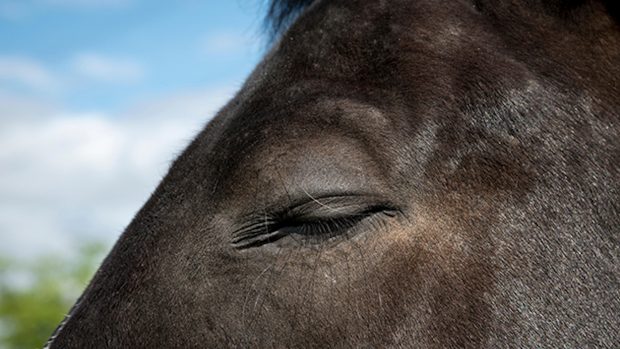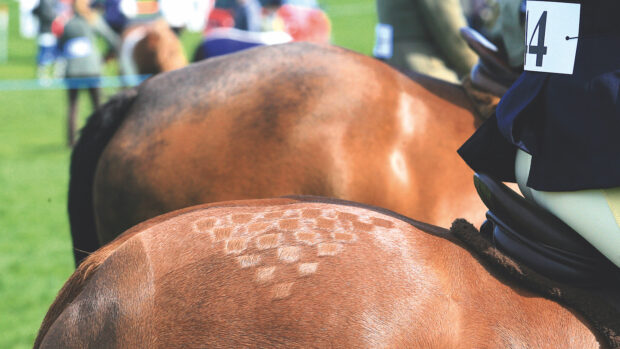Opinion
Am I too big for my horse?
Discussing the most recent results of her landmark study into the effects of rider weight, the Animal Health Trust’s (AHT) Sue Dyson gave two very good general pieces of advice.
She said if someone has to ask the question, whether they’re too heavy or too big for a certain horse, the answer is probably yes, and also that if the whole picture looks wrong, it probably is.
We’ve all seen posts on social media from people asking this very question and they typically follow a similar pattern.
If anyone does try to suggest that yes, the rider does look a bit big, the poster will often become offended and reply: “Well he’s fine”.
Similarly, in posts asking along the lines of “I’m 5’8” and 11 stone, can I ride a 13hh?”, there will always be replies along the lines of “Well I’m 5’9” and 12 stone and I jump a 13hh, and he’s fine.”
But what does that mean; in what way is the horse “fine”? Is it just that he’s not buckling at the knees, that he’s carrying on doing what he’s asked to do?
Horses are stoic and tolerant by nature and will keep trying to please us despite any discomfort and even pain they may be feeling. They’re also prey animals, for whom in the wild, showing weakness or lameness can mean they don’t live long. They’re programmed to hide it.
Rider weight is a difficult and sensitive issue to approach. In many social media posts, someone will play the “fat-shaming” card. But it’s not about that. It’s not about being overweight. You could be a size zero supermodel, well under a healthy weight, let alone the ideal one, yet still be too heavy for a small pony.
You could be medically overweight, or even obese, by your BMI, but if your horse is big, strong and fit enough, with a saddle fitted well to you and him, and you’re fit and balanced, it’s possible you could ride him without an issue. And in the middle is a whole range of moderately sized, average-build riders who may not be overweight at all, and may never think about whether they’re too big for a certain horse.
The key here is having a suitable horse, and a suitable saddle.
If your saddle fits the horse but is too small for you – which could be down to height or length of leg rather than weight – you could end up sitting too far back, pushing everything out of alignment and balance and loading the horse’s back inappropriately, so even if you’re not too heavy, you could be causing a problem because you’re too big.
As Sue said, if you’re not sure, ask an expert. Are your shoulders, hips and heels in a straight line? Does the horse look happy? If someone says: “Oh he always grinds his teeth,” does that actually mean he’s always been uncomfortable?
If the picture looks wrong, it probably is. But if it looks right, that’s probably the case too.
You might also be interested in:

Overweight riders asked to dismount at show
The organising committee ruled that anyone deemed to be too heavy for their mount would be spoken to

Heavy riders have impact on horse welfare
Riding schools have told H&H they are having to change the way they work to accommodate increasingly heavy clients. But

Excess rider weight can cause lameness
Results of a landmark pilot study show the negative effect heavier riders can have on horse performance
For the full report on the latest research results, see this week’s H&H magazine, out 8 March.




